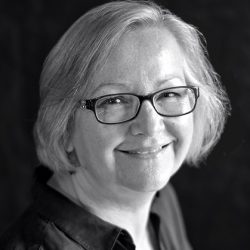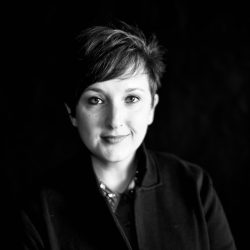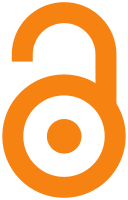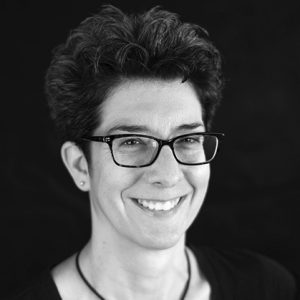Open Access Week: Finding Open Access Resources
By Nancy Foasberg
Happy Open Access Week! This is your Scholarly Communication librarian again, back with some tips for finding great resources online.
Consider this scenario: You are doing some research, and you come across an article or a book chapter that looks perfect, but it’s not available at Falvey Library. Of course, you should use the library’s Interlibrary Loan services, but there’s also a chance you might find it freely available online.
These are also great resources to remember once you’ve graduated! Open access resources are available regardless of whether you are affiliated with a university or not.
Browser Extensions
Open Access Button or Unpaywall. These are both browser extensions that search for legal, openly available versions of articles.
If you check Google Scholar for openly available versions of an article, either of these extensions will come in very handy.
When you come across a paywalled article, the browser extension will pop up a padlock symbol – green if the article is freely available somewhere, and gray if it isn’t.
If you see the green padlock, you can click on it for a free version of the article.
Searching for Open Resources
You could always search the Directory of Open Access Journals, which allows you to search for articles published in open access journals, or OpenDOAR, which allows you to search materials in open access repositories.
Alternatively, you could search a repository directly, like arXiv, PubMedCentral, or CORE, or you can use Google Scholar to uncover materials in the myriad repositories that are out there.
You’ve likely heard of Academia.edu and ResearchGate. I am slightly reluctant to recommend these resources because, much like social media sites, their objective is to gather user data, and it’s not very clear what they are doing with that data. However, these sites are very popular and many scholars upload their works there.
If you’re looking for primary sources or otherwise older materials, you might try HathiTrust Digital Library, which includes both open access and public domain items. If public domain items are of interest, you might also consider looking at the Library of Congress Digital Collections, or perhaps Wikimedia Commons.
The library also has a guide to open access and freely available resources with several additional helpful suggestions.
But What about Textbooks?
That’s a great question! The cost of textbooks is a major concern, and my colleague Linda Hauck has blogged about affordable class materials before.
The library has some great tips for saving money on textbooks, including using the library’s collection or reserves, or borrowing from another library via EZBorrow.
If your textbook isn’t already on reserve at the library, you can ask your professor to put it on reserve – any print textbook and some electronic textbooks can be made available this way. (If you feel shy about asking your professor to do this, your subject librarian may be able to help.)
If you do need to buy your textbooks, you can get a better deal at the bookstore by taking advantage of the Wildcard discount (for more information, see the Affordable Materials Project page) or using the textbook price matching program.
And if you’re having a financial emergency, please apply for the Student Hardship Fund.
Getting Help
Another great way to find open access resources is to talk to your friendly scholarly communication librarian! You can contact me at nancy.foasberg@villanova.edu.
And again, you should always feel free to use Interlibrary Loan to access resources we don’t have available here.

Nancy Foasberg is Scholarly Communication Librarian at Falvey Library.



 Alfred Fry is Science and Engineering Librarian at Falvey Library.
Alfred Fry is Science and Engineering Librarian at Falvey Library.
 Drafting this post, I looked for examples of academic journals published in African languages and was surprised how difficult an endeavor this turned out to be. Admittedly, some African languages are spoken by comparatively small populations. However, Igbo boasts roughly 30 million native speakers, about the same number as all native speakers of all Scandinavian languages put together. I soon came to realize that African languages that were actively used in scholarly communication were generally those that held “official language” status in an African country, such as Amharic in Ethiopia and Swahili in Tanzania. I found a few examples through
Drafting this post, I looked for examples of academic journals published in African languages and was surprised how difficult an endeavor this turned out to be. Admittedly, some African languages are spoken by comparatively small populations. However, Igbo boasts roughly 30 million native speakers, about the same number as all native speakers of all Scandinavian languages put together. I soon came to realize that African languages that were actively used in scholarly communication were generally those that held “official language” status in an African country, such as Amharic in Ethiopia and Swahili in Tanzania. I found a few examples through  Jutta Seibert is Director of Research Services & Scholarly Engagement at Falvey Memorial Library.
Jutta Seibert is Director of Research Services & Scholarly Engagement at Falvey Memorial Library.






 Many of the resources on the new guide are available to all, rather than hidden behind a paywall or licensing restrictions, because they are published as Open Access (OA) projects. Guided by the principle that it is beneficial for society when scholarly research is available without barriers, OA materials are online research outputs that are made available without cost to the reader. Instead, the expenses associated with OA publications are covered by the authors, their institutions, and/or grant funding. There are a variety of OA publications, repositories, software, and projects out there; read more about OA in Peter Suber’s
Many of the resources on the new guide are available to all, rather than hidden behind a paywall or licensing restrictions, because they are published as Open Access (OA) projects. Guided by the principle that it is beneficial for society when scholarly research is available without barriers, OA materials are online research outputs that are made available without cost to the reader. Instead, the expenses associated with OA publications are covered by the authors, their institutions, and/or grant funding. There are a variety of OA publications, repositories, software, and projects out there; read more about OA in Peter Suber’s 


 The
The  Open Access (OA) has the potential to maximize research investments, increase the exposure and use of published research, facilitate the ability to conduct research across available literature, and enhance the overall advancement of scholarship. Research funding agencies, academic institutions, researchers and scientists, teachers, students, and members of the general public are supporting a move towards Open Access in increasing numbers every year. Open Access Week is a key opportunity for all members of the community to take action to keep this momentum moving forward.
Open Access (OA) has the potential to maximize research investments, increase the exposure and use of published research, facilitate the ability to conduct research across available literature, and enhance the overall advancement of scholarship. Research funding agencies, academic institutions, researchers and scientists, teachers, students, and members of the general public are supporting a move towards Open Access in increasing numbers every year. Open Access Week is a key opportunity for all members of the community to take action to keep this momentum moving forward.